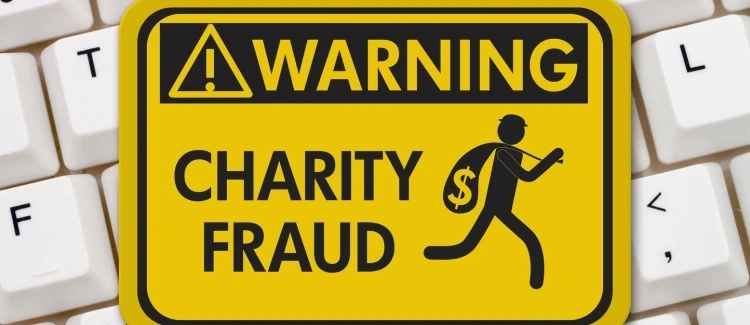In a world that often seems rife with crises and calamities, many of us are eager to lend a helping hand. Whether it's aiding disaster relief efforts, supporting medical research, or contributing to local causes, charitable donations have the power to make a real difference. However, amidst the genuine and commendable organizations, there exist fraudulent entities ready to exploit your goodwill. This Macropay Scam Alert serves as a crucial guide to help you navigate the treacherous waters of charity fraud and ensure your donations reach their intended destinations.
The Charity Landscape
Charitable organizations, often referred to as nonprofits or NGOs (non-governmental organizations), play a pivotal role in addressing social issues, supporting vulnerable populations, and promoting positive change. However, the charity landscape is vast, encompassing both well-established, reputable organizations and lesser-known entities. It's within this diverse ecosystem that scammers often operate, taking advantage of people's desire to make a difference.
The Rise of Charity Fraud
Charity fraud is a form of financial scam in which individuals or groups misrepresent themselves as legitimate charitable organizations to solicit donations, only to misappropriate the funds for personal gain. Unfortunately, these scams have seen a significant increase in recent years, with fraudsters becoming increasingly sophisticated in their tactics.
Common Charity Fraud Schemes
1.Impersonation of Established Charities: Scammers may impersonate well-known charities by creating fake websites, sending phishing emails, or making fraudulent phone calls. They use names and logos that closely resemble those of reputable organizations to deceive donors.
Fake Disaster Relief: During times of crisis, such as natural disasters or public health emergencies, scammers often capitalize on people's willingness to help by setting up fake relief funds. These schemes exploit the urgency of the situation to swindle well-intentioned donors.
Bogus Appeals: Some fraudsters tug at heartstrings with fictional stories of individuals in dire need, claiming that donations will directly assist these people. These stories can be emotionally manipulative and are used to prey on donors' empathy.
High-Pressure Tactics: Scammers may use high-pressure sales tactics, such as urgent demands for immediate donations or promises of exclusive rewards for contributions, to coerce individuals into giving.
Protecting Yourself from Charity Fraud
Research the Charity: Before donating, research the organization thoroughly. Look for reviews, ratings, and information about their financial transparency and governance. Websites like Charity Navigator, GuideStar, and BBB Wise Giving Alliance can help you assess a charity's credibility.
Beware of Unsolicited Contact: Be cautious of unsolicited emails, phone calls, or text messages requesting donations. Legitimate organizations don't typically solicit donations in this manner.
Verify the Website: If you receive an email or come across a website asking for donations, verify the website's URL to ensure it matches the legitimate charity's site. Scammers often use URLs that are similar but slightly altered.
Ask Questions: Don't be afraid to ask questions about how your donation will be used. Reputable charities are transparent about their use of funds and impact.
Use Secure Payment Methods: When donating online, ensure that you are using secure payment methods, such as credit cards, rather than wire transfers or gift cards. Credit cards offer more protections against fraud.
Keep Records: Keep detailed records of your donations, including receipts and confirmation emails. This documentation can be valuable for tax purposes and in case of any disputes.
Report Suspicious Activity: If you suspect charity fraud, report it to your local authorities and organizations like the Federal Trade Commission (FTC) or Better Business Bureau (BBB).
Macropay Scam Alert in Conclusion
Charitable giving is a noble endeavor that can bring about positive change in the world. However, it's crucial to exercise caution and due diligence to ensure that your donations reach their intended beneficiaries. By staying informed, researching charities, and recognizing the signs of charity fraud, you can contribute to genuine causes and help make the world a better place while safeguarding your goodwill and generosity from scammers. Remember that your donations can truly make a difference, but only if they go to the right place.


